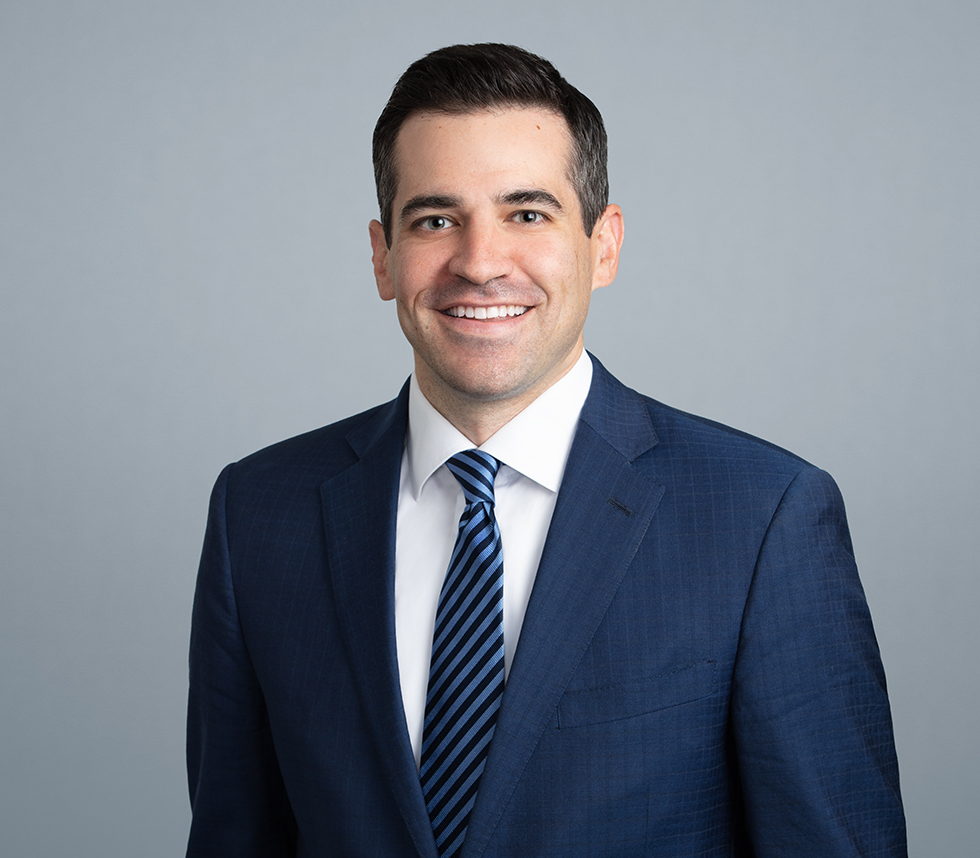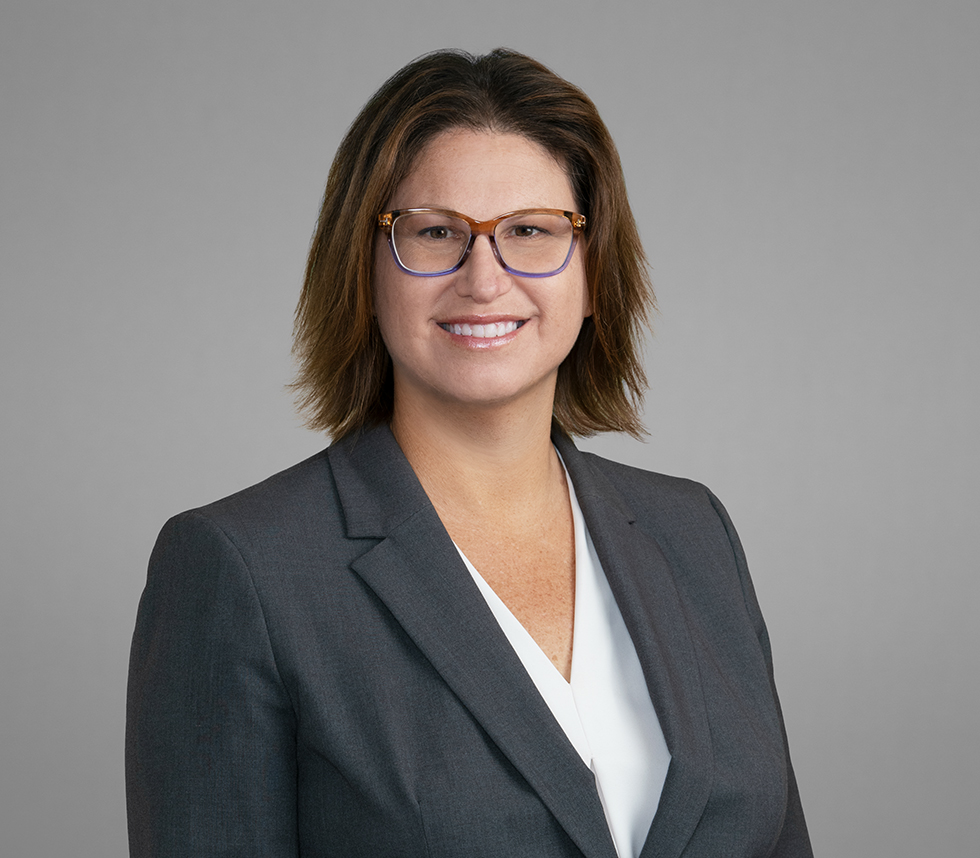
So You Are Being Sued in the District of Nebraska: 10 Things To Know
No two federal judicial districts are the same. From different laws, judges, and local rules, to idiosyncratic norms and customs, each district has its own hurdles and unique considerations. Nebraska is no different. If you have a case filed in the United States District Court for the District of Nebraska, if your case has been transferred here, or if it is otherwise your first time litigating a case in this District, then you will be facing a learning curve.
To help you climb that learning curve, we have compiled a list of answers to some of the most common questions we receive from new parties and litigants. While experienced, thoughtful Nebraska counsel is your best guide to navigating the local terrain, we hope these questions and answers will help orient you to the federal courts in the Cornhusker State.
1. Is the District of Nebraska geographically divided into distinct divisions?
Unlike many jurisdictions, the District of Nebraska does not have a map dividing the state into separate divisions. Cases are generally heard in two places: Lincoln or Omaha. Both courthouses are near the eastern edge of the state, where the courtrooms, offices, and staff are located. (On rare occasion, a case may be heard further west in North Platte. The Court used to maintain offices in North Platte, but in 2014 the North Platte Federal Courthouse closed. Federal cases heard in North Platte are now heard at the Lincoln County Courthouse.)
Who decides where a case is tried? Generally, a plaintiff will pick the location of trial when filing the complaint. If the plaintiff has filed in state court and the case is removable to federal court, then the defendant gets to decide whether to remove it to federal court and request the place of trial. In either case, the local rules provide the opposing party the opportunity to bring a motion challenging the chosen location of trial. Keep in mind, however, that such motions are rarely filed—Lincoln and Omaha are only about 50 miles apart—so there is limited case law addressing such motions. The decisions that do exist tend to focus on the convenience of the litigants, witnesses, and attorneys in deciding the place of trial.
2. Who are the judges in the District of Nebraska to whom my case could be assigned?
The District of Nebraska has three active, non-senior judges: Chief Judge Laurie Smith Camp, Judge John Gerrard, and Judge Robert Rossiter, Jr. The District also has two senior judges who carry significant caseloads: Judge Joseph Bataillon and Judge Richard Kopf. (Until 2017, Judge Lyle E. Strom also maintained a significant case load, hearing cases at the age of 92. At the end of the year, Judge Strom retired from the bench.) Chief Judge Smith Camp has announced that she will take senior status on December 1, 2018, but will continue to handle a full-time caseload. As of this writing, no announcement has been made as to who will be nominated to fill the opening created by Chief Judge Smith Camp’s decision to take senior status.
The District also has four magistrate judges. They are Judge Susan Bazis, Judge F.A. Gossett III, Judge Michael Nelson, and Judge Cheryl Zwart. Any of the magistrate judges could be assigned to your case, even if the magistrate judge is based in a different courthouse than the district court judge.
You can learn more about the district and magistrate judges here.
3. Does Nebraska allow for the recovery of attorney’s fees or the recovery of punitive damages?
This is one of the questions we are most frequently asked. For cases involving federal statutes—e.g., claims alleging patent infringement under the Patent Act—the answer generally is the same as it would be in any other district involving the same federal statute, regardless of where the case is pending.
For diversity cases in which Nebraska state law provides the rule of decision, the answer to both questions is generally “no.”
In contrast to many states, Nebraska law does not generally allow the recovery of attorney’s fees. The Nebraska Supreme Court has held that the most common vehicle for recovery of attorney’s fees—an agreed-upon contractual provision—is void as against public policy. In other words, even if you have a contractual provision providing for fees, it will not be enforced in Nebraska. There are, however, exceptions to this general rule, as certain Nebraska statutory claims explicitly allow for the recovery of fees. See, e.g., Neb. Rev. Stat. § 87-141.
4. Do I have to hire local Nebraska counsel if I have a case in the District of Nebraska?
The answer is “no,” unless the Court orders otherwise. The local rules do not require local counsel. Thus, an attorney may be admitted to practice before the Court without associating with local counsel.
That said, while the District of Nebraska’s local rules do not require local counsel as a matter of course, under the rules, “[a] judge may require an attorney who is not a resident of this district to associate with an attorney who is both a resident of this district and a member of this court’s bar.” NEGenR 1.7(i).
While you may not be required to have local counsel, we often find that parties greatly benefit from having good local counsel. Having local counsel—someone who understands the local rules, customs, norms, and common pitfalls, and who is familiar with and respected by other members of the local bar and the judiciary—can be incredibly valuable for out-of-state litigants.
5. Are there any local discovery-related rules of which I should be aware?
If you get to discovery in your case, make sure you are familiar with the local rules, because the District of Nebraska has a number of nuances to the procedures laid out in the Federal Rules of Civil Procedure. Nebraska’s unique discovery practices include subpoena rules, certificates of service, and a specifically defined interrogatory counting methodology.
Subpoenas to nonparties: Under Federal Rule of Civil Procedure 45, a party serving a document subpoena must provide notice of the subpoena to all parties before service of the subpoena. The Federal Rules put the onus on the non-subpoenaing party to move to quash the subpoena. Nebraska’s local rule—NECivR 45.1—modifies this procedure in two significant ways. First, it clarifies that the subpoenaing party must give the adverse party at least seven days’ notice before serving a document subpoena on a nonparty and specifies what must be contained in such notice. Second, the local rule allows the adverse party to serve written objections on the noticing party and, upon service of such objections, it prohibits the subpoenaing party from issuing the subpoena “until the parties resolve the objections.” Should the parties be unable to resolve the objections, this rule effectively places the burden on the party wishing to serve the subpoena to file a motion seeking permission to serve the subpoena. This is different from the procedure under Federal Rule of Civil Procedure 45, and you should keep it in mind when considering subpoena practice.
Certificates of service: The District of Nebraska, like many districts, does not require parties to file their discovery requests or responses with the Court. The parties must, however, file a certificate of service with the Court when those requests or responses are served. See NECivR 33.1(e) (interrogatories), NECivR 34.1(b) (requests for production), and NECivR 36.1(c) (requests for admission). These are simple but important filings.
Interrogatory counting methodology: No matter where your case may be pending, how to properly count the number of interrogatories served can be contentious. Are sub‑parts counted as a separate interrogatories? Does it matter if they logically flow from the primary interrogatory? If you find yourself litigating in the District of Nebraska, pay close attention to NECivR 33.1(c) when drafting or responding to interrogatories. It states that “in determining the number of interrogatories, including sub-questions, each inquiry seeking a discrete item of information is counted as one interrogatory.” Thus, the rule goes on, “the following question is counted as 3 interrogatories: ‘Please state the name, address, and telephone number of any witness to the accident set forth in the complaint.’” The local rules also prohibit a party from separately defining words used in an interrogatory without leave of Court. See NECivR 33.1(b).
No matter what discovery you are serving or responding to, the expectation in the District of Nebraska is one of reasonableness. (In addition to the above, Magistrate Judge Zwart has some specific requirements about the handling of discovery disputes, which you can view here.)
6. Do judges in the District of Nebraska regularly hear oral arguments or otherwise require the parties to appear in court?
In some jurisdictions, hearings are common—you can get a hearing for any dispute, from a discovery dispute or non-dispositive motions to motions for summary judgment or motions to dismiss. In Nebraska, that tends not to be the case—there are relatively few hearings in civil cases in the District of Nebraska. Generally, there will be a scheduling conference, pre-trial conference, and trial. In a patent case, the Court will also generally hold a claim construction or “Markman” hearing.
This preference for minimal in-court appearances is spelled out in Local Rule 7.1: “In general the court does not allow oral argument or evidentiary hearing on motions.” NECivR 7.1(d). If a party wishes to have a hearing on a motion, the local rules require the litigant to explicitly ask for a hearing and explain why one is necessary. See id. For most motions, the Court will hold no hearing and parties should generally assume that a motion will be resolved on the papers. The exception to this rule is scheduling and discovery disputes that are being handled by a Magistrate Judge. It is common for Magistrate Judges to handle discovery disputes and case management issues via phone conferences.
7. How many pages do I have for this brief?
Under the local rules, the answer is “enough to make your point and no more,” since the rules do not impose a page limit on briefing. Some individual judges, however, may impose limits in their published practice standards. For example, Judge Bataillon’s “brief preferences” posted on the Court’s website says he prefers briefs that are less than 25 pages (exclusive of section numbering and contested and uncontested issues) except in extremely complicated cases. He then gives examples of complicated cases (patent cases and some securities cases) and not complicated cases (employment discrimination, social security, basic contract, and tort). Make sure you check any specific guidelines for your District Court Judge before starting on your brief.
8. How long will it to take to get my case to trial?
The District Court of Nebraska is busy, with the second-highest weighted filing count for all the district courts in the Eighth Circuit. For civil cases, the median time from the filing of the complaint to disposition is a little over eight months, still almost two months faster than the average for the rest of the country’s federal district courts.
On the flip side, the median time from filing to trial in Nebraska is 28 months—two months longer than the median time for all of the federal district courts. Although numerous factors can impact the time to trial or disposition, one way to speed a case along in Nebraska is to consent to disposition or trial by the Magistrate Judge. Because the Magistrate Judges do not preside over criminal trials, they usually are able to schedule civil trials more expeditiously and with greater certainty that the case will proceed on the date scheduled.
9. Is mediation optional?
The District of Nebraska has a Mediation Plan, which encourages mediation of disputes before trial. However, unlike in some other jurisdictions, the Court does not routinely require parties to engage in mediation prior to trial. That said, if a District Judge or Magistrate Judge finds there is a “practical possibility” that the parties may reach a satisfactory voluntary settlement, the Judge can order the parties to mediate their dispute. The Court maintains a list of pre-approved mediators, but the parties are free to select another mediator.
The Magistrate Judges in the District of Nebraska are also willing to assist in settlement conferences with parties. If the assigned Magistrate Judge is still actively ruling on discovery disputes or other matters in the proceeding, he or she may hand off the settlement conference to one of the other Magistrate Judges.
10. What time do I need to file documents that are due to the Court on a given day?
Another frequent question we get, especially from our busy AmLaw 100 co-counsel working on complex cases, is “what time do we need to have our brief/pleading filed?” The answer is 11:59 p.m. (Central) the day it is due. Like every other federal district court, the District of Nebraska uses the CM/ECF system. Filings are accepted for the day of filing if complete by the end of the day. If you are using local counsel who is filing your pleading, make sure they are available to handle at the appointed time.
If you or your company has a lawsuit in Nebraska, contact our team. We know the Nebraska court system and have counseled our clients in a wide variety of complex commercial and intellectual property cases in the state. In fact, our team served as Nebraska counsel in one of the largest patent litigation defense wins in the state in the last 10 years. Bottom line: If you have a dispute in Nebraska, we can help.
Get in touch today for help with your Nebraska case.
Topics: Nebraska Litigation




















